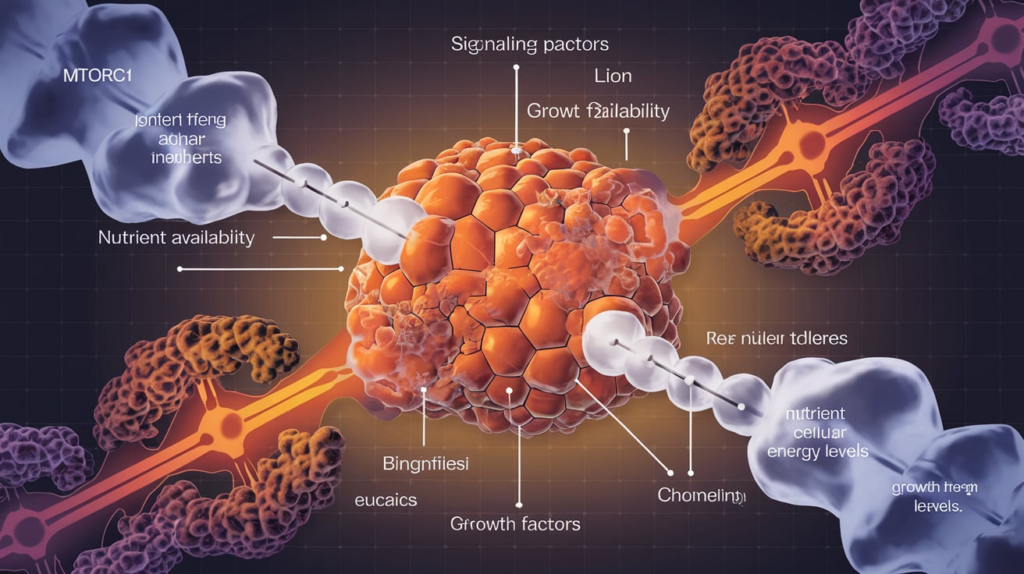In recent years, researchers have been exploring various pathways in cellular processes, particularly the mTORC1 pathway. A critical component in this area is NV-5440. This article will delve into what NV-5440 in mTORC1 is, its significance, and its potential implications for health and disease.
What is mTORC1?
Before diving into NV-5440, it’s essential to understand mTORC1. The mechanistic target of rapamycin complex 1 (mTORC1) is a crucial protein complex that regulates cell growth, metabolism, and proliferation. It responds to various signals, such as nutrients, growth factors, and cellular energy levels. By managing these processes, mTORC1 plays a vital role in maintaining cellular homeostasis.
The Role of NV-5440 in mTORC1
Now, let’s focus on NV-5440 in mTORC1. Researchers have found NV-5440 is a novel compound that interacts with the mTORC1 pathway. Its primary role is to modulate the activity of this protein complex, potentially leading to various biological outcomes. By influencing mTORC1, NV-5440 can affect cell growth and metabolism, which are crucial for healthy and diseased states.
Mechanism of Action
The exact mechanism by which NV-5440 in mTORC1 operates is still being studied. However, initial findings suggest that it may inhibit the activity of mTORC1 under certain conditions. This inhibition can lead to decreased protein synthesis and slowed cell growth, which could be beneficial in conditions like cancer, where cell proliferation is uncontrolled.
Why is NV-5440 Important?
Understanding NV-5440 in mTORC1 is vital for several reasons:
1. Cancer Research
One of the most exciting areas of study involving NV-5440 in mTORC1 is its potential use in cancer treatment. Since mTORC1 is often overactive in various cancers, targeting this pathway with NV-5440 could help control tumor growth. Researchers are investigating how NV-5440 might enhance the effectiveness of existing cancer therapies.
2. Metabolic Disorders
NV-5440 also has implications for metabolic disorders. Conditions like obesity and diabetes are linked to mTORC1 activity. By regulating this pathway, NV-5440 in mTORC1 could offer new therapeutic strategies for managing these diseases, potentially improving metabolic health.
3. Aging
Another area of interest is aging. The mTORC1 pathway has been implicated in the aging process. Modulating its activity with compounds like NV-5440 may increase lifespan and improve healthspan. Research in this field is ongoing, but initial studies show promise.
Research and Development
The journey of NV-5440 in mTORC1 began in laboratory settings, where scientists explored its biochemical properties. Several studies have focused on its pharmacokinetics—how it is absorbed, distributed, metabolized, and excreted in the body. Understanding these factors is crucial for developing NV-5440 into a viable therapeutic option.
Preclinical Studies
Preclinical studies have shown that NV-5440 can effectively inhibit mTORC1 activity in various cell lines. These studies provide a foundation for future research and demonstrate the potential of NV-5440 as a therapeutic agent. Researchers are now working to determine the optimal dosages and treatment regimens.
Clinical Trials
As NV-5440 moves closer to clinical trials, its safety and efficacy will be closely monitored. Initial trials will focus on its effects on cancer patients, followed by studies on metabolic disorders. The results of these trials will be critical in determining whether NV-5440 can be developed into a treatment option.
Potential Challenges
While the future looks promising for NV-5440 in mTORC1, several challenges remain. One significant concern is ensuring that the compound selectively targets mTORC1 without affecting other pathways. Unintended effects could lead to complications or reduced efficacy in treatment.
Side Effects
Like any therapeutic agent, NV-5440 may have side effects. Research teams will need to conduct thorough safety assessments during clinical trials. Identifying and managing potential side effects will be crucial for its acceptance in the medical community.
Conclusion
NV-5440 in mTORC1 is an exciting area of research that holds promise for various health conditions, including cancer and metabolic disorders. By understanding its role and potential impacts, scientists are paving the way for new therapeutic strategies that could improve patient outcomes.
As research continues, the implications of NV-5440 in mTORC1 will become more apparent. Whether it leads to breakthrough treatments or enhances existing therapies, NV-5440 represents a significant step forward in understanding cellular processes and their impact on health. Staying informed about developments in this area will be essential for healthcare professionals and patients.

